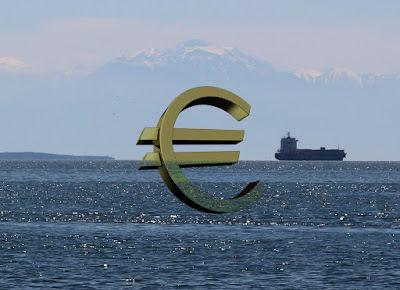Why you shouldn't believe economists or analysts and instead should focus on dividends
- Economists can’t forecast a recession
- Analysts earnings forecasts are doomed
- Dividends represent 80% of the revenues for long-term investors
http://www.investorsinsight.com/otb_va_print.aspx?EditionID=645
Extracts:
1. Economists can’t forecast a recession
Economists never forecast recessions until well after they have begun - that is if they manage to forecast them at all!
2. Forward PE and inability for analysts to make good predictions
The US market is currently sitting on a 12-month forward PE of 14x. This may not sound like a lot compared to the 24x reached during the excesses of the bubble years. However, judging value relative to the peak of a bubble isn't a great idea2.
The average forward PE since IBES began collecting data is around 15x. Hence today's level of valuation can't be said to be discounting a deep recession. Additionally, the IBES data is very limited. We can have a pretty good guess what the forward PE would have looked like historically by adjusting the trailing PE by the average gap between forecast and trailing earnings. Such an exercise reveals that a longer-term average forward PE would be around 12x. This once again pours cold water on the arguments that the market is already discounting a recession.
As if this wasn't bad enough, in the past we have shown that analysts tend to be around about 10% too optimistic in their year-ahead forecasts of the earnings level. However, in recession years this jumps to 30% too optimistic. If this is the case then instead of $103 EPS that the consensus of analysts are forecasting for the S&P500 over the next 12 months, the actual outturn might be closer to $73 per share. This would take the forward PE from its current 14x to around 19.5x!
However, analysts are essentially useless when it comes to forecasting medium-term growth. The chart below shows that the sectors which analysts expect to grow the fastest tend to actually deliver exactly the same growth as the sectors where analysts are least optimistic. Of course, the sectors with the highest expected growth have enormous scope for disappointment.
3. Why dividends matter
If you are investing on say a five-year time horizon then the change in valuation accounts for only around 20% of your total real return. The vast majority of any longer-term return comes from dividend yield and dividend growth (see chart below).





Comments
Post a Comment